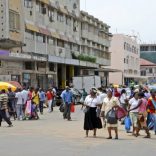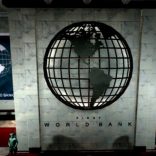Mozambique: Six out of ten Mozambicans have no savings
Heavy penalties for former directors of Moza Banco

File photo
The Bank of Mozambique has imposed heavy penalties on the former directors of Moza Bank, a commercial bank that suffered a liquidity crisis in 2016, and was rescued by central bank intervention.
The crisis in Moza Bank, then the fourth largest commercial bank in the country, became public knowledge on 30 September 2016, when the Bank of Mozambique stepped in and sacked the entire board of directors, imposing a provisional board, headed by one of the country’s most experienced bankers, Joao Figueiredo.
The central bank injected large amounts to keep Moza Bank afloat while it was restructured. As a result, Kuhanya, the company that manages the central bank’s pension fund, became the majority shareholder.
According to a report in the latest issue of the independent weekly “Savana”, the central bank’s investigations into Moza’s near collapse in 2016 have led to the conclusion that the board was guilty of serious irregularities. The penalties imposed, in documents dated 13 April, include fines ranging from 200,000 to 500,000 meticais (3,310 to 8,280 US dollars, at current exchange rates), and a ban on holding office in any bank for period of between two and three years.
These penalties cover all eight members of the board who were in office on 30 September 2016. The most prominent of these is the then chairperson of Moza Bank, Prakash Ratilal, who is a former governor of the Bank of Mozambique.
The inspection by the central bank, says “Savana”, found that Moza Bank did not comply with its duty to draw up policies and procedures for managing operational risks, had not identified and measured those risks, and had not approved policies to guide the management of liquidity. Among many other alleged irregularities, there were also no contingency plans to deal with situations of shortages of liquidity, and no policy to manage conflicts of interest.
The former Moza directors have 15 days to appeal against the penalties through the courts, but must pay the fines first (although the money will be returned if the appeals are successful).
Asked by “Savana” if he intends to appeal, Ratilal said that, “even with the option of resorting to the courts, my stance is to comply with the decision of the regulator”.
The former head of the Moza Executive Commission, Ibrahimo Ibrahimo, said he was the victim of an injustice “but my conscience is clear”. He had not yet decided whether to appeal.
“Savana” says that its queries lead to the conclusion that only two of the eight former directors will appeal.
Ratilal pointed out that he was one of those who helped build the Bank of Mozambique, and it was an institution “of which I am proud, and for which I have deep respect”. He had always acted in good faith, he said, and had always respected the country’s institutions.
He intended to continue working for the progress of Mozambique. “Life goes on”, he told the paper. “Despite the current difficulties, as soon as the crisis of confidence in the markets is overcome, Mozambique will resume its noteworthy growth resting on hydrocarbons, mineral resources and much else. I am participating in several projects that are structuring for the country, and the work will continue”.












Leave a Reply
Be the First to Comment!
You must be logged in to post a comment.
You must be logged in to post a comment.